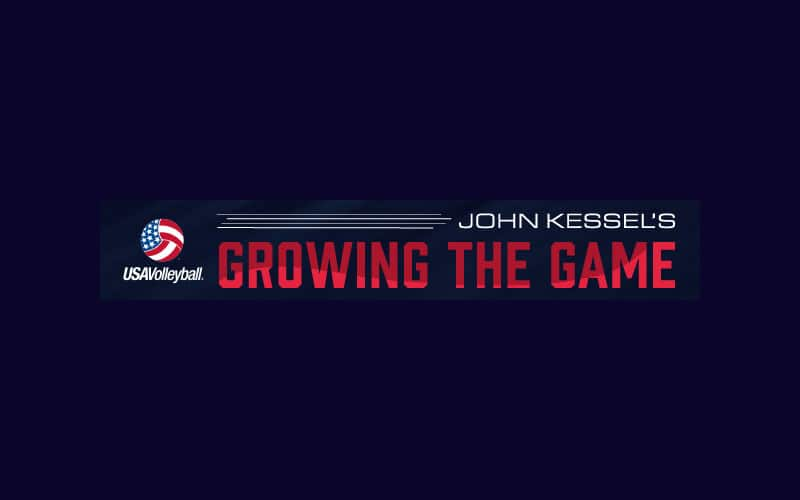
For more than 40 years, one of the first things I say to new teams and summer camp players is just that: “I want to see mistakes out here on the court.”
You see, I want players to do things they have never done before; to stretch their “citius, altius, fortius” limits. When you do things that are new, you err along the way.
I don’t want to see the athletes doing things they are already really good at with few if any errors. I want to see those errors that are part of learning. I promise I will not get upset or call them out, unless it has been an error I have never seen before. It has been decades since I did stop and call an error out.
The fact that I want them to err is the first test in building trust. I am not sure in the end if there is anything more important to build in a team, sporting or otherwise, than trust.
Part of the key to building trust is to “Be Consistent.” Part of building trust is to believe in the process of learning and knowing that “stuff happens.”
In the end, if trust does not exist, performance will be negatively impacted as well as the athlete’s overall experience in the program.
So the trust in making mistakes as part of learning is vital. The field of play is an “exploratorium,” to use a word I first heard from the creative Olympic coach Bill Neville. It is a place to stretch your limits and do new things.
Contrast that to those coaches who feel you must be perfect, demand perfection from their players and punish if that perfection is not achieved. I can’t think of a more selfish thing to focus on in a team sport than being “perfect.”
Author Brene Brown said it best in the book Daring Greatly with “Perfectionism is a hustle.”
“Perfectionism is not self-improvement. Perfectionism is, at its core, about trying to earn approval. Most perfectionists grew up being praised for achievement and performance (grades, manners, rule following, people pleasing, appearance, sports).
Somewhere along the way, they adopted this dangerous and debilitating belief system: ‘I am what I accomplish and how well I accomplish it. Please. Perform. Perfect.’ Healthy striving is self-focused: How can I improve? Perfectionism is other-focused, What will they think? Perfectionism is a hustle.”
Perfect Isn't Possible
You simply cannot be perfect in the vast majority of sports played on this planet. You certainly cannot be when you choose to play a team sport. It is not possible to play a perfect game of volleyball unless you sit on the bench and make no errors by not being part of the action. So what you CAN do is understand that errors are GOOD, and part of learning.
Former NFL quarterback Drew Bledsoe wisely said, “If you’ve never failed at anything then you have probably not risked anything.”
It is time for coaches to stop punishing players for the randomness and chaos in sport. Embrace it by focusing on the process and not a perfect outcome. Focus on a reality-based outcome, where the score takes care of itself and your efforts are on making changes, from decisions to technical.
Mistakes are crucial to learning, and in the end, that is all this is about. These include mistakes in decisions and in technique. When coaches punish for failure to perform to their perfect expectations, compliance may happen, but at the loss of inspired behavior and creative solutions. Someone said it well with “Punishment may get you compliance, but not inspired behavior.” Not to mention that such fear may be a motivator, but it is a very poor compass.
Mistakes, even to the point of failure, are simply the stepping stones to success across any river. If you have ever watched a group of people cross a stream on a log or stones, you know that there are countless ways to do it. Some will first learn not by a mistake or two of slipping (doing something they know how to do well, and have trained for decades – walking), but even in falling in.
Each of us makes our crossing progress uniquely, with errors, and in time reaches the other side of the stream in our journey. Failure and mistakes are not the opposite of success; they are the very essence of it. We must allow for, and not punish, mistakes in learning.
I believe your players should not be playing for you while YOU become part of the opponent’s roster by demeaning and punishing your athletes.
Guide their discovery of the information that you know and want them to know. Do not humiliate them. It is fine to be demanding, but when you demand perfection, you are setting the players up for failure.
Through trust, you will see players who fight to win, but don't panic because they are afraid to lose. I have always thought that if punishment was such a great motivator/change agent, then everyone coming out of prison would be great new citizens for their community. Your players will not perform perfectly, and they do not need to be perfect or “polished” in practice to be ready to compete.
In closing, it seems appropriate to share the “Serenity Prayer” - “Accept the things you cannot change, change the things you can and have the wisdom to know the difference.”
